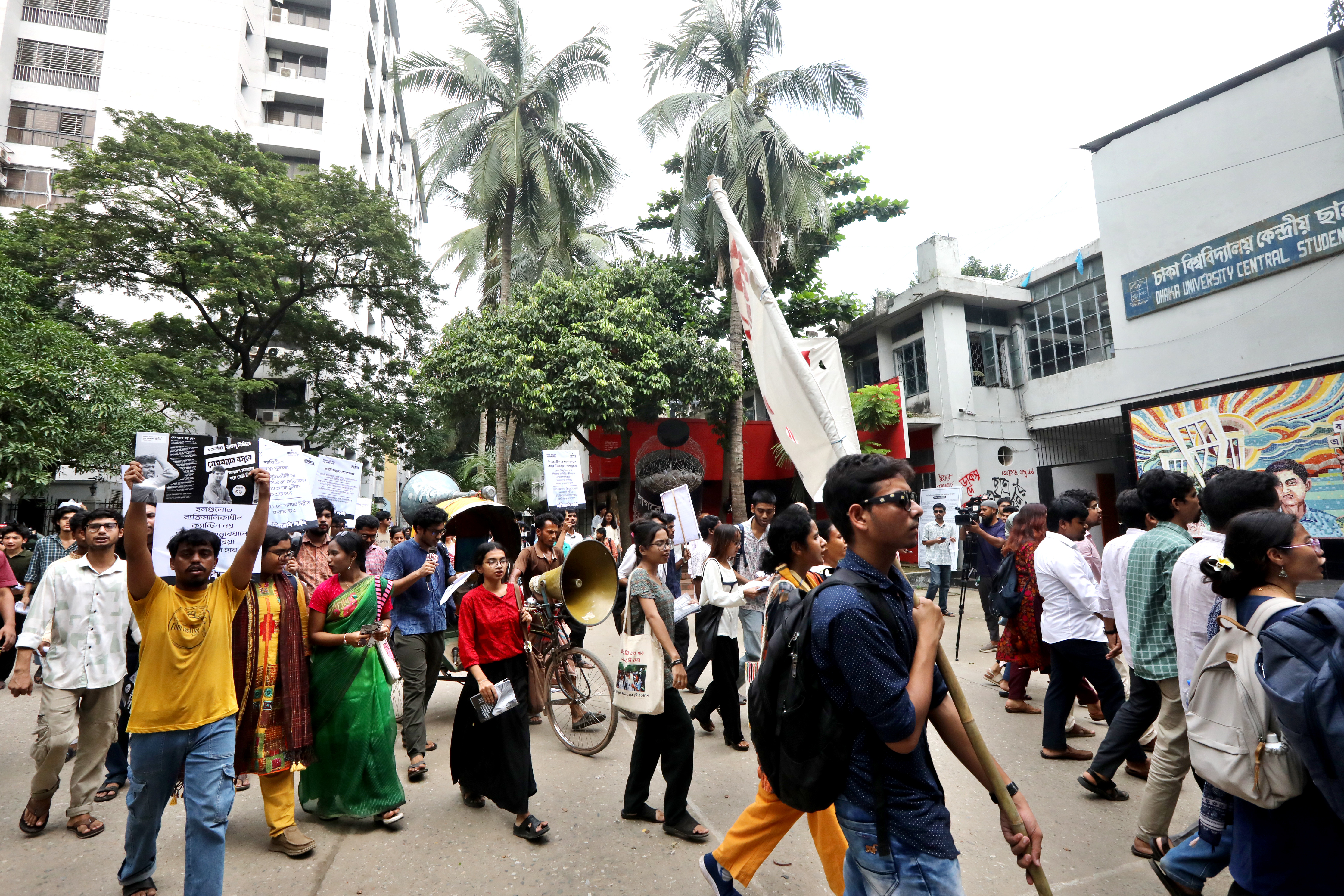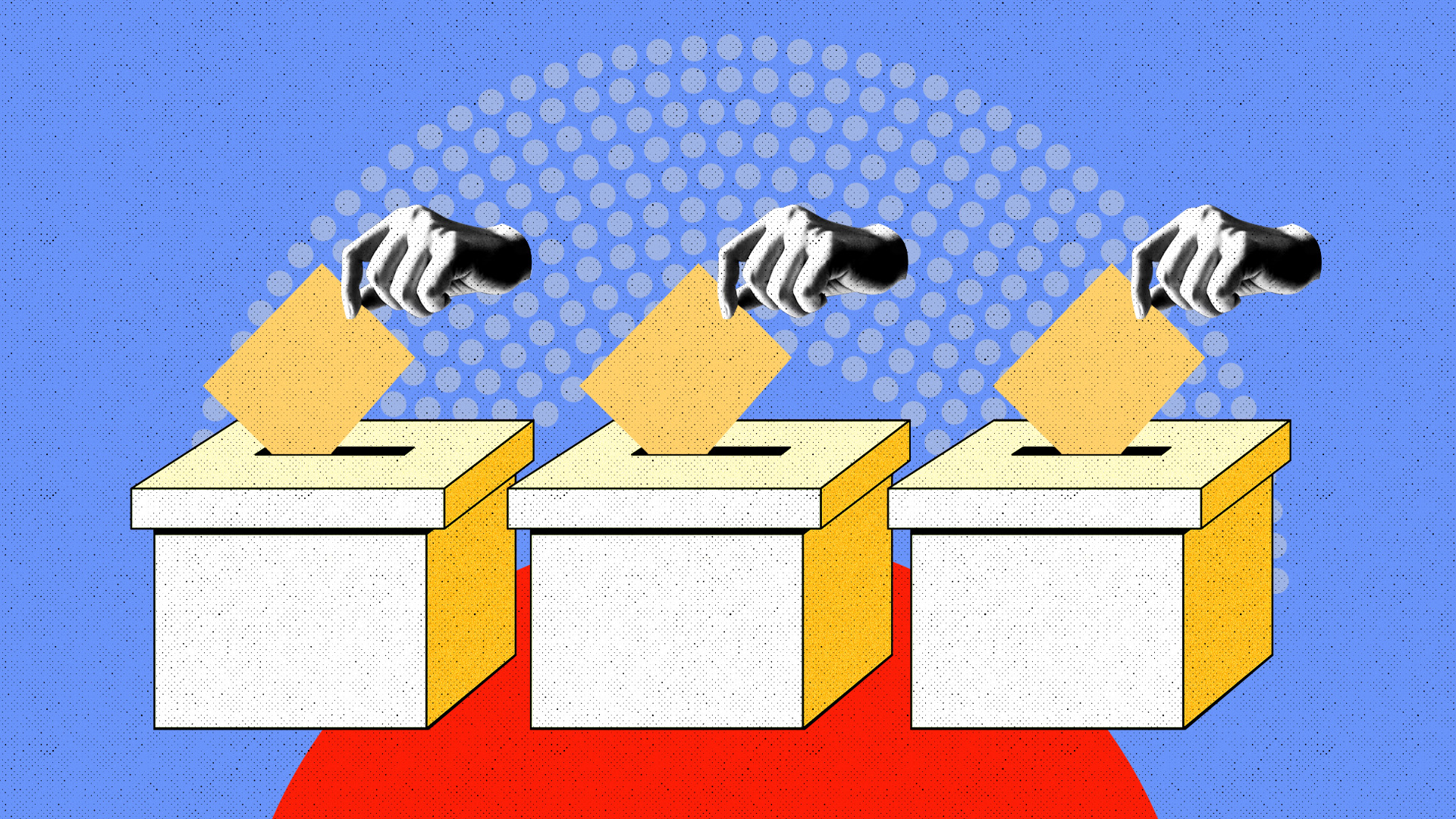An election that could return Ducsu to the students

To be honest, I had never thought I would care about Dhaka University Central Students' Union (Ducsu). I spent most of my time at the Institute of Business Administration (IBA) of Dhaka University (DU) focusing on classes, assignments, internships, and networking. Ducsu, for us, was the iconic spot where you get breakfast for Tk 10, something that amuses IBA freshers. Campus politics always felt like a story I read about. And DU for most of my life, felt like a place where student politics existed in the background, a constant hum, but not something that shaped my daily reality.
This is because I had the luxury of being apolitical. At IBA, one's academic performance, dedication, and ideas mattered far more than political affiliations. Politics, in the traditional DU sense, simply did not reach us, and this was a privilege that most of the other students did not have. They lived in a different reality, one that was shaped, constrained, and intimidated by the dominance of the Bangladesh Chhatra League (BCL). We read these horror stories online, heard people talk in hushed voices and genuinely felt bad for them, but speaking up didn't seem like an option. However, now, I feel like I cannot look away. There is a sense of possibility in the air, a rare, almost tangible feeling that something is different.
My father, who enrolled in DU as part of the 1986-87 batch, had a different university experience. Back then, they could vote for whoever they wanted in the Ducsu election. He recalls cherishing that freedom. Over the last 15 years, that freedom was far from a reality as the student wing of the former ruling party shaped a reality where every choice carried weight beyond personal preference. This year, that contrast makes this election feel all the more remarkable as it presents a rare window for students to truly unshackle their voices.
For decades, DU has been dominated by the BCL. They were omnipresent with posters, slogans, campus events, and the silent pressure of a system where political alignment often dictated opportunities. For many students residing in the halls, who simply wanted to focus on academics, that dominance was frustrating and isolating. And we watched from the sidelines, wondering whether student leadership could ever represent students like us, who wanted a fair, academic, and inclusive environment, rather than a politically charged one. This time, for the first time in my life, it feels like Ducsu could genuinely belong to the students. Suddenly, panels I have never heard of before are stepping forward, with candidates who do not have any political legacy to lean on, who speak in language that makes sense to a student like me. There is little political jargon and more of a vision for students being heard, represented, and respected.
What really stands out is how much the conversation has changed on campus. In the past, even talking about Ducsu was dangerous because you had to know who was associated with whom, what that meant for you socially and academically, and how to engage without being caught in a web of political allegiances. This year, the conversation is about ideas and reforms. Candidates are engaging students with surveys and informal discussions, asking not just what we need but what we want, with a shift from performative politics to meaningful engagement. And it is not just the ideas, but the tone. There is a certain energy, curiosity, and respect. Students are debating and challenging without fear of reprisal. This offers an opportunity to reshape the culture of representation, accountability, and engagement.
So this time, if we turn up, engage, and vote, this election could bring back to the original idea of student politics, where Ducsu is not dominated by a single party, and where students from every faculty, background, and gender can participate meaningfully. It is also tempting to feel sceptical because student politics in Bangladesh has always been messy, brimming with partisanship, violence and apathy in equal parts. But this year, I see glimpses of something different. I see panels willing to listen, students daring to question, and a campus ready to imagine a better system. I see a Ducsu that might actually embody the ideals we have only ever discussed in theory.
This Ducsu election also matters because it tests a broader societal aspiration and the hope that institutions can be inclusive, accountable, and responsive to their constituents. If a university known for seething political tensions can foster a free, fair, and student-centred election, it becomes evidence that meaningful change is possible when people believe and work towards it.
Last week, when I went to DU for my internship registration, I noticed the conversations. Students are curious, cautious, and excited. There is no cynicism, at least not the kind that paralyses action. So, yes, this year, our vote could matter, not just for the Ducsu, but also for the future of this university. It is time to turn up and make a difference.
Maisha Islam Monamee is a student at the Institute of Business Administration (IBA), University of Dhaka, and a contributor at The Daily Star.
Views expressed in this article are the author's own.
Follow The Daily Star Opinion on Facebook for the latest opinions, commentaries, and analyses by experts and professionals. To contribute your article or letter to The Daily Star Opinion, see our guidelines for submission.




 For all latest news, follow The Daily Star's Google News channel.
For all latest news, follow The Daily Star's Google News channel. 

Comments